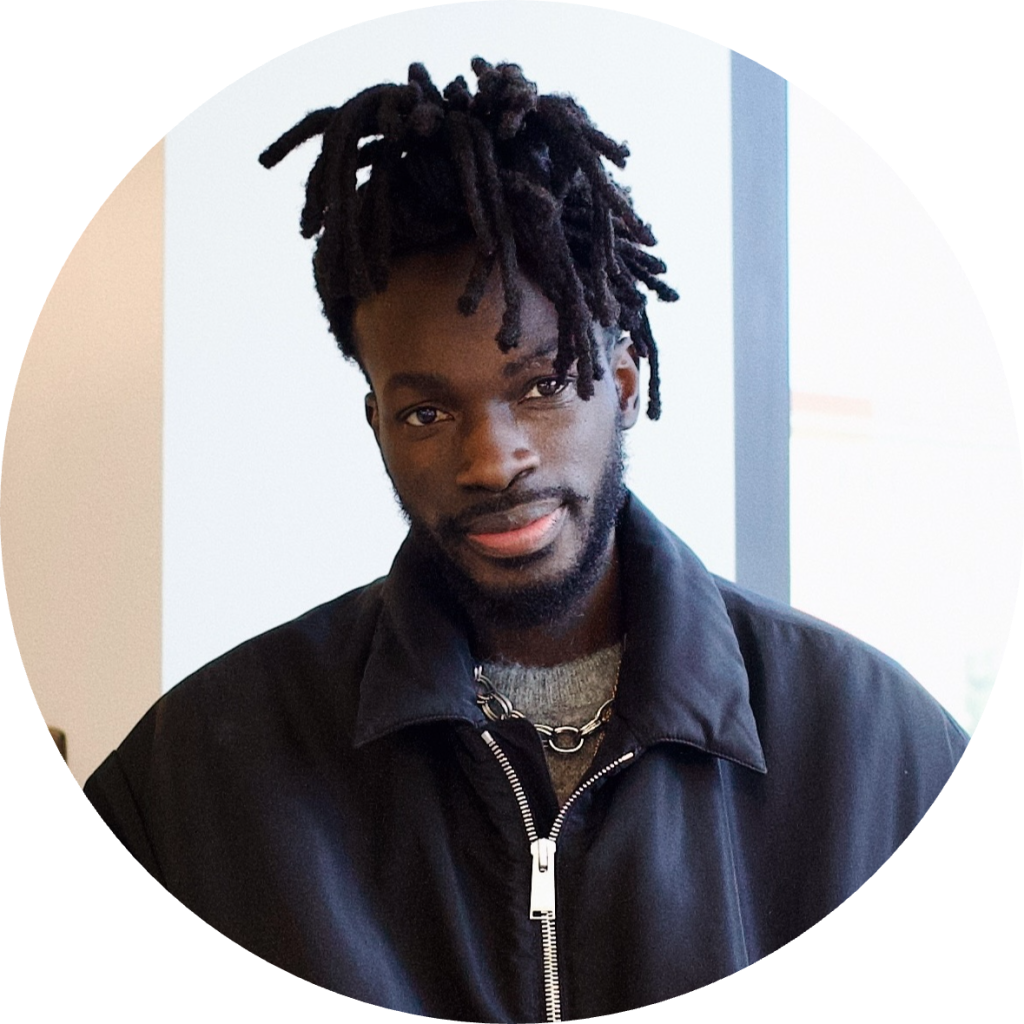Meet some of the Gen Z entrepreneurs behind the next AI innovation wave

This article is part of WorkLife’s special edition, which examines how the jobs and careers of Generation Z professionals will be reshaped and evolve in the AI-informed era. More from the series →
Gen Zers aren’t just passively watching the rise of generative artificial intelligence, they’re taking an active role in shaping it. And these Gen Z AI entrepreneurs are forming communities as they innovate alongside each other.
In San Francisco many young entrepreneurs are co-living as they design and create their AI startups. For some of them, that’s meant quitting their jobs at big tech companies like Google and Meta, or even dropping out of college, to join the wave of next-generation AI startups. Thanks to a 12-week residency AI accelerator program funded by tech entrepreneur Dave Fontenot, called Hacker Fellowship Zero, AI entrepreneurs (mostly Gen Z age) can live in a converted mansion in Alamo Square, and receive a $250,000 investment in exchange for 2.5% in ownership of each new startup created under its roof. They also get all rent, bills, food, amenities and laundry covered.
Elsewhere, in New York City, there are more tech houses, where groups of Gen Zers live together while they build a variety of AI-powered products. These range from tools that help high school students get into their top colleges to ones that help decipher what your dream from the night before meant.
We talked to several Gen Z founders who are building AI-driven startups to learn more about how they are pushing to ensure their generation is ahead in the AI era.
Swapping stability for innovation
Iddris Sandu, 26-year-old founder and CEO of Spatial Labs, an immersive technology company, has worked at many of the big tech companies – Twitter, Instagram, Snap, Meta, and Google, as either a contractor or interning for a few months at a time. He’s also worked at Yeezy – Kanye West’s sneaker brand – for two years leading design and tech, consulting with top musical artists like Beyoncé and Rihanna.
But his plan was always to create something himself. That’s why, in December 2019, he created Spatial Labs, which creates technology that uses both AI and augmented reality to create smart consumer products. For example, the company offers blockchain-authenticated footwear and wearable clothing that grants owners access to unique AR online environments.
“Very early on I saw a corporate structure and there were things I liked and loved about it, but also things I felt wouldn’t really work for our generation,” said Sandu, who is originally from Compton, California. “We want to have a lot of autonomy and flexibility as it pertains to creativity.”
That’s the mindset he applies to his own 35-person staff based in Silicon Valley.
Matthew Parkhurst is another Gen Z entrepreneur who wants to make his mark in the AI tech world. He dropped out of school to sell cars in 2016, which gave him his first taste of sales. In 2022, he co-founded a company called Antimetal, an AI-powered tool that helps companies save money using the Cloud. So far, they’ve raised $4.3 million in VC seed funding and have recently passed the 1,000 customer mark, including companies politics-focused media publisher Politico, Enable Medicine, and People Data Labs.
Not everyone is so willing to jump in to the AI revolution head first however. Coco Chen has taken a more cautious approach, retaining her day job as senior product manager at Tinder, and dabbling in AI product creation in her spare time. She has created Dreammore, an AI dream interpretation app that turns users’ dreams into beautiful artwork based off of keywords in the description of the dream that the user inputs.
Side hustles go hand in hand with Gen Z workers, 72% of whom have one, according to a September 2022 survey by Bank of America. And this so-called “hustle generation” has been open about why they matter to them.
“I developed my product as a side hustle,” said Chen. “I still want to be a product manager in a consumer space. We have a small team, who are all part time and consider ourselves ‘fractional entrepreneurs.’ Until we get more validation, we are still going to have a full-time job.”
Chen’s AI product is currently more of a personal passion project than a business proposition. “I don’t care if it’s a billion-dollar business,” she added.
Why Gen Z can make a difference in the AI world
Changxiao Xie is the 25 year-old co-founder of AI-powered college and career counseling startup Empowerly. He says the platform, which he started in 2018, is designed to assist students in understanding the complexities of the U.S. college and career education system. That’s a leg up that he, as a three-year-old immigrant from China, never had, but which he believes fills a current void.
“I was born in China, and didn’t understand much about the U.S. college and career education system,” said Xie. I was the first in my family to actually attend college and it was challenging. In China, it was one exam. Here, it’s about essays, extracurricular activities, SATs, ACTs, all of that. I didn’t have the support I needed.”
Xie leveraged his background in AI and machine learning at Facebook and IBM to build an AI-powered scoring system that helps high school students know how likely they are to be accepted into top universities. It was released in 2020. The platform has seen tremendous growth with thousands of users today and has secured over $12 million in VC funding. But beyond the money, he’s happy to be doing something in tech that he actually cares about.
“At Facebook, the core of the work I was doing was how do you get folks watching videos for longer,” said Xie. “The motivation and mission for those sorts of tools is a little bit disconnected from what I care about. It’s about leveraging AI to not have to spend time on someone else’s platform more but really to help further your own goals.”
Xie thought a lot about how to use AI responsibly when creating Empowerly. He approached building the AI tools with a mindset of how it can be used to support and uplift humans. For example, what he built is meant to level the playing field and provide students with a holistic analysis of how they measure up against students applying to the same colleges. “It comes from an abundance mindset wanting to further humanity.” And the data they do use is always anonymized.
Responsible and ethical AI is top of everyone’s minds currently. Having grown up with the internet, Gen Zers have been much freer with their data privacy than previous generations and therefore are perhaps quicker to trust AI-powered services, as some reports have stated. And yet, they’re known for strong ethics and for choosing employers that align on their own personal values. That means Gen Z AI entrepreneurs are acutely aware of the importance of responsible use of AI.
For 24-year-old Ary Vaidya, associate at Kyber Knight Capital, a new $120 million VC fund investing in AI across sectors AI is as much a moral and ethical conversation as it is a technical one.
Sandu agrees and encourages Gen Zers to create their own companies. “Traditionally, a lot of these [tech] companies have been started by millennials or baby boomers,” said Sandu. “You have an entire generation that has built a level of codependency on platforms being created for them, rather than them being the ones inspired to develop the technology. We are a large user base, but don’t have a creator base.”
He believes this is doubly important because Gen Zers are inheriting large-scale problems like climate change and a post-pandemic shaky economy. “Consumption overrides creation for Gen Z, yet we’re tackling some of the largest problems in the world that we didn’t directly create either,” he added.
Many of these new startups are inspired by their co-founders’ personal experiences. Maxim Serebryakov, a 25-year-old from Russia and co-founder of AI translation tool Sanas.ai, is no exception. Serebryakov graduated from Stanford University in 2020, where he met a friend, Raul, who was originally from Nicaragua. That friend had to leave Stanford prematurely and return to his home country, where he ended up working at a call center. Despite going to a top university and being smart, he was underperforming at work because of the language barrier. His friend’s account inspired Serebryakov to create an AI-powered speech company to help people connect better. It’s now used in call centers across India and the Philippines.
“After building out these algorithms, we realized that having implemented this algorithm within the call center, Raul’s life would’ve been a lot better,” said Serebryakov. “He wouldn’t have left his job. He wouldn’t have lost bonuses due to people abusing him on phone calls.”
Raul now works at Sanas.ai.
Lessons from previous generations
Vaidya works at early-stage VC firm Kyber Knight Capital, with two other associates who span different generations. He’s the token spokesperson for Gen Z, but he’s OK with that. His remit involves helping older generations understand what Gen Zers are capable of when it comes to embracing new technology and being open to learning new things, especially in the world of AI.
“I think there’s a beautiful marriage to be had between the younger generations who are tech savvy and have the technical skills to build this technology, and the older generations who have industry expertise,” said Vaidya. “The best startups and founding teams will have a combination of both the young fresh perspective, but also the industry veterans who have spent decades understanding this industry.”
It’s not always easy though, with age bias still a factor for young CEOs and leaders. “One of the things that I personally experienced early on in my life is ageism,” said Sandu. “The older generations say they’re supposed to be taking care of our generation – [we’re] not actually [meant to] be the ones to help contribute or develop it.”
The knock-on effects of this is that some Gen Zers prefer to only work with people their own age. For example, Parkhurst’s company – cloud cost optimization platform Antimetal – has nine employees, with most of them in their early 20s.
“They’re young people excited about this emerging tech and to solve a big problem,” said Parkhurst. “That’s what we’ve seen to be the best culture fit so far – these people who are really excited and hungry to solve the next big problem and can see with a fresh set of eyes.”
Chen agrees, saying that because Gen Z is more AI native, they have an advantage. “We develop trust towards AI much easier than older generations,” said Chen. “My parents are like ‘oh I don’t trust ChatGPT,’ it’s just not what they’re used to. We are the first generation that fueled that power.”
She admits though, that when it comes to funding, she could use an expert.
“Most investors are like 40 to 50 [years old] and they don’t understand why my product is relevant,” said Chen. “It’s the only time where I feel like maybe I need an industry expert to help with my pitches and bridge the generation gap. But for now, day to day, it’s not a big issue.”
Serebryakov agrees that fundraising is a particular challenge for Gen Z founders of AI startups. That’s why he has a team of people from all generations (90% of whom are immigrants), so people can pick up where others might be lacking.
Navigating between creating a new AI startup’s mission and sustaining a strong company culture can be a lot for a young professional. But this generation is up for the challenge.
“Every single Gen Z founder early on will have a lot of distractions,” said Serebryakov. “That’s just the reality of it. It might be easy to stray away from your original motivation. But we ended up learning that we want to build algorithms that supercharge people and allow for them to perform even better. Those are the core ethical values we’ve brought in.”


